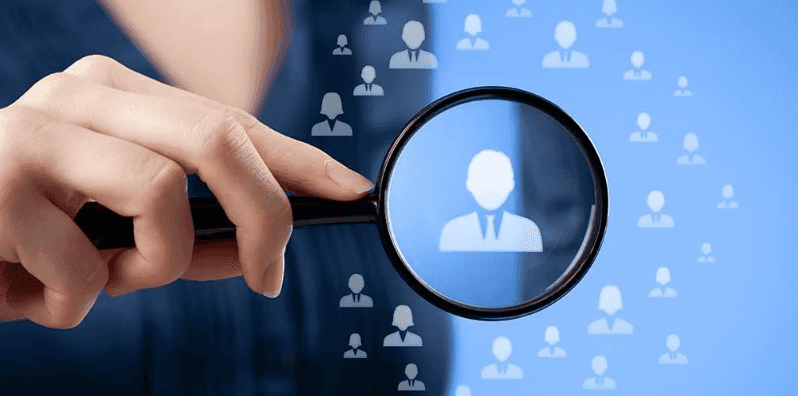Introduction: Decoding the Complex World of Background Screenings
When you‘re waiting for a background check, every minute can feel like an eternity. Whether you‘re a job applicant, an employer, or a landlord, understanding the intricate mechanisms behind background check processing times is crucial. This comprehensive guide will demystify the technical landscape of background screenings, offering you an insider‘s perspective on how long these checks actually take and why.
The Technical Anatomy of Background Checks
Background checks are far more complex than most people realize. They‘re not simply a matter of pushing a button and instantly retrieving information. Instead, they represent a sophisticated dance of data retrieval, verification, and cross-referencing that involves multiple systems, databases, and human interactions.
The Fundamental Timeline: What Influences Background Check Duration?
Data Source Complexity
The time required to complete a background check varies dramatically based on the sources being investigated. Think of it like a detective gathering evidence – some clues are easy to find, while others require extensive research.
Criminal Record Investigations
Criminal background checks can range from lightning-fast to frustratingly slow. A local county-level criminal record search might take just 1-2 days, while a comprehensive national criminal database search could extend to 3-5 business days. International criminal checks? Those can stretch to several weeks, depending on the countries involved and their record-keeping systems.
Verification Channels and Their Impact
Different verification channels introduce unique time variables into the background check process:
Employment Verification: Contacting previous employers can take 2-5 days, especially if the companies are large or have complex HR departments.
Education Verification: Academic record checks typically require direct communication with educational institutions, which can add 3-5 days to the process.
Credit History Checks: These can be relatively quick, often completed within 24-48 hours through automated systems.
Technological Innovations Transforming Background Screening
The Rise of Digital Verification Systems
Modern background check processes have been revolutionized by technological advancements. Machine learning algorithms and artificial intelligence now play significant roles in expediting and enhancing verification processes.
[Processing Time = f(Data Source Complexity, Technological Infrastructure, Verification Channels)]Key Technological Enablers:
- Automated database cross-referencing
- Real-time information retrieval
- Advanced matching algorithms
- Cloud-based verification platforms
Impact of Artificial Intelligence
AI-driven systems can now:
- Reduce manual verification time
- Improve accuracy of information matching
- Identify potential discrepancies faster
- Streamline multi-source data collection
Legal and Regulatory Considerations
Compliance Adds Complexity
Background check duration isn‘t just about technological speed – it‘s also heavily influenced by legal requirements. Different industries and regions have specific regulations governing how and when background information can be accessed and processed.
For instance, the Fair Credit Reporting Act (FCRA) in the United States mandates certain procedural standards that can impact overall screening timelines. These legal frameworks ensure individual privacy while providing necessary verification mechanisms.
Industry-Specific Variations
Not All Background Checks Are Created Equal
The time required for a background check varies significantly across different sectors:
Healthcare Sector
Healthcare background checks often involve more extensive verification, including:
- Professional license confirmation
- Sanctions list checks
- Comprehensive criminal background investigations
Typical processing time: 5-10 business days
Financial Services
Financial industry screenings require rigorous checks, including:
- Detailed credit history analysis
- Comprehensive criminal record searches
- Employment and education verification
Typical processing time: 3-7 business days
Technology and Startup Environments
Tech companies might leverage more advanced, faster verification technologies, potentially reducing check times to 1-3 days.
Factors That Can Delay Background Checks
Common Bottlenecks in the Verification Process
Several factors can unexpectedly extend background check timelines:
Incomplete or Inaccurate Information
Providing incorrect personal details can significantly delay the process.Complex Personal History
Individuals with multiple residences, name changes, or international work experience may require more extensive verification.Unresponsive Reference Sources
When previous employers or educational institutions are slow to respond, the entire process can be delayed.
The Future of Background Screening
Emerging Trends and Technologies
The background check landscape is continuously evolving. Emerging technologies like blockchain for identity verification and advanced machine learning algorithms promise to make screenings faster, more accurate, and more secure.
Predictive models suggest that within the next 5-10 years, background checks could be reduced to near-instantaneous processes, with multi-source verification completed in minutes rather than days.
Practical Recommendations
If you‘re going through a background check, here are some strategic recommendations:
- Ensure all personal information is accurate and consistent
- Prepare documentation in advance
- Be proactive in responding to verification requests
- Understand the specific requirements of your industry
- Consider working with reputable screening providers
Conclusion: Demystifying the Background Check Timeline
Background checks are complex, multifaceted processes that balance technological efficiency with legal compliance and thorough verification. While timelines can vary, understanding the underlying mechanisms can help set realistic expectations.
Remember, each background check is unique. The key is patience, preparation, and understanding the intricate systems working behind the scenes to provide comprehensive, accurate information.
Final Insights
Background checks are more than just a procedural formality – they‘re a critical tool for maintaining safety, integrity, and trust across various professional and personal contexts.
